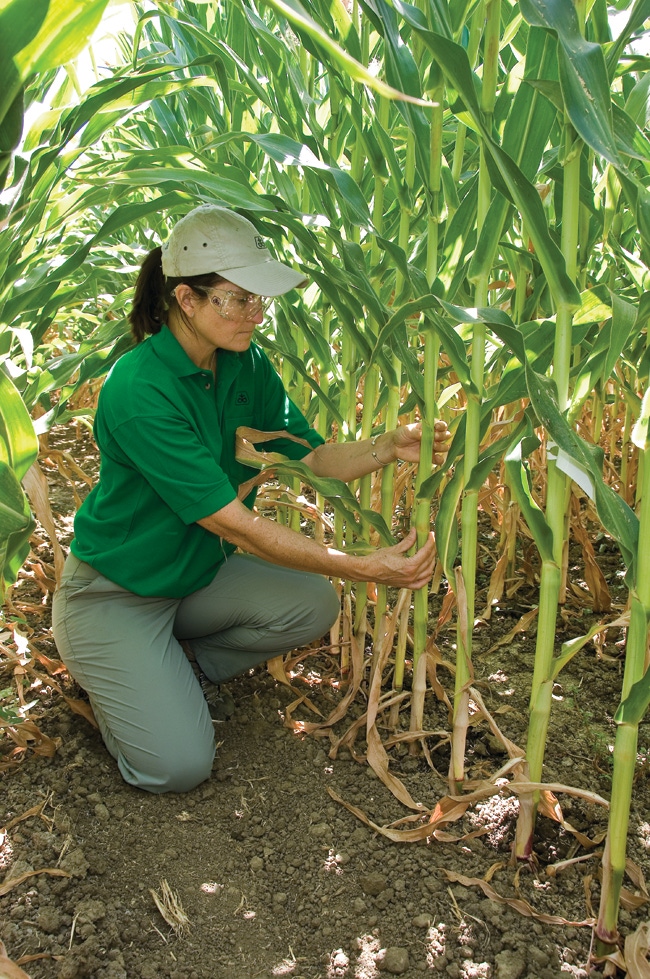August 31, 2012

Corn hybrids that could yield better with the same amount of nitrogen or grow with less nitrogen are still several years away from commercialization. But they are progressing along the research pipeline at breeding companies, including Monsanto, DuPont Pioneer and Syngenta.
Helping the advancement of nitrogen use efficiency (NUE) are technology companies that license biotech traits to the seed companies. The Davis, California-based Arcadia Biosciences, for example, has licensed NUE technology to multiple seed companies for development in several crops, including corn, wheat, cotton and sorghum. Crops with the NUE trait are yielding as much as 15% more per acre than crops without the trait, according to Eric Rey, president and CEO, Arcadia Biosciences.
Research and development phases
NUE hybrids are unlikely to hit the market for several more years, though. There are five phases in biotech research and development. Each phase will last between 12 to 36 months. Monsanto’s most advanced NUE material is in the middle of the development phases.
Monsanto researchers have found a large number of NUE candidate genes in model plant species, according to Thomas Ruff, Monsanto. In collaboration with BASF, Monsanto has discovered quite a few different phenotypes with improved nitrogen pathways in plants. The companies are testing genes for yield improvement under limited nitrogen conditions in the field.
Ruff acknowledges that, while the companies are making progress, there is still a long way to go. NUE is a complex trait, and geneticists have yet to discover a genetic event that meets all agronomic standards to be even considered for commercialization.
Jeff Schussler, DuPont Pioneer, adds that researchers are evaluating how nitrogen is taken up, transported and metabolized through the plant. In growth chamber and greenhouse trials, Pioneer is evaluating a number of transgenes from other plant species that could affect these functions.
Promising genes are incorporated into elite corn germplasm to determine yield improvement. But there are challenges to getting both NUE functionality and consistency of yield, Schussler says.
Genes that improve yield
In the discovery phase, Syngenta is evaluating a number of gene candidates that have been identified by Steven Rothstein, University of Guelph geneticist, as part of a larger program to increase yield. The genes are undergoing efficacy trials at growth chamber and greenhouse levels, and the most promising ones will then be entered into field tests to determine how the trait expresses itself in the corn plant. Yield trials will come later.
NUE genes interact with various environmental factors (such as moisture level and soil type). This, coupled with the fact that nitrogen is taken up and transported through the plant at different stages of the corn’s life cycle, adds complexity to NUE research as well as gene stacking, explains Nic Bate, Syngenta.
But such complex work could eventually provide a huge payoff for farmers who could see improved yields and potentially decreased nitrogen fertilizer costs. Nitrogen fertilizer accounts for about one-fifth of the typical corn grower’s operating costs—and corn plants typically absorb less than half of the nitrogen fertilizer applied.
About the Author(s)
You May Also Like




